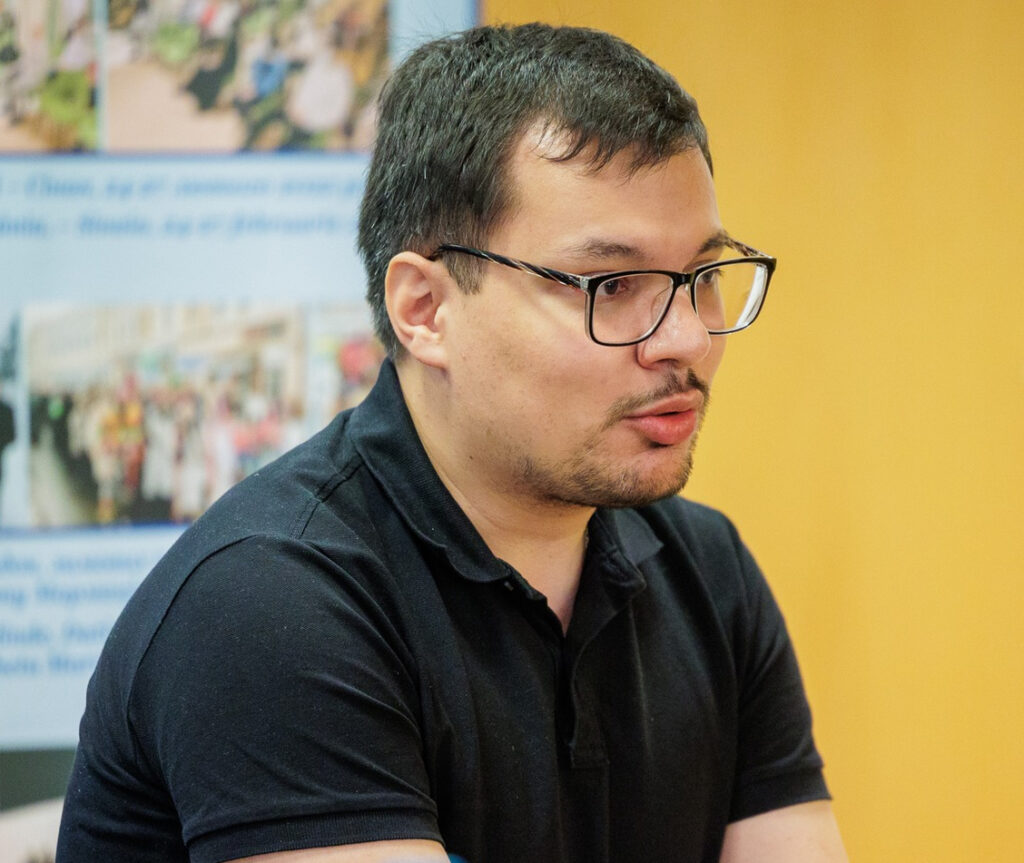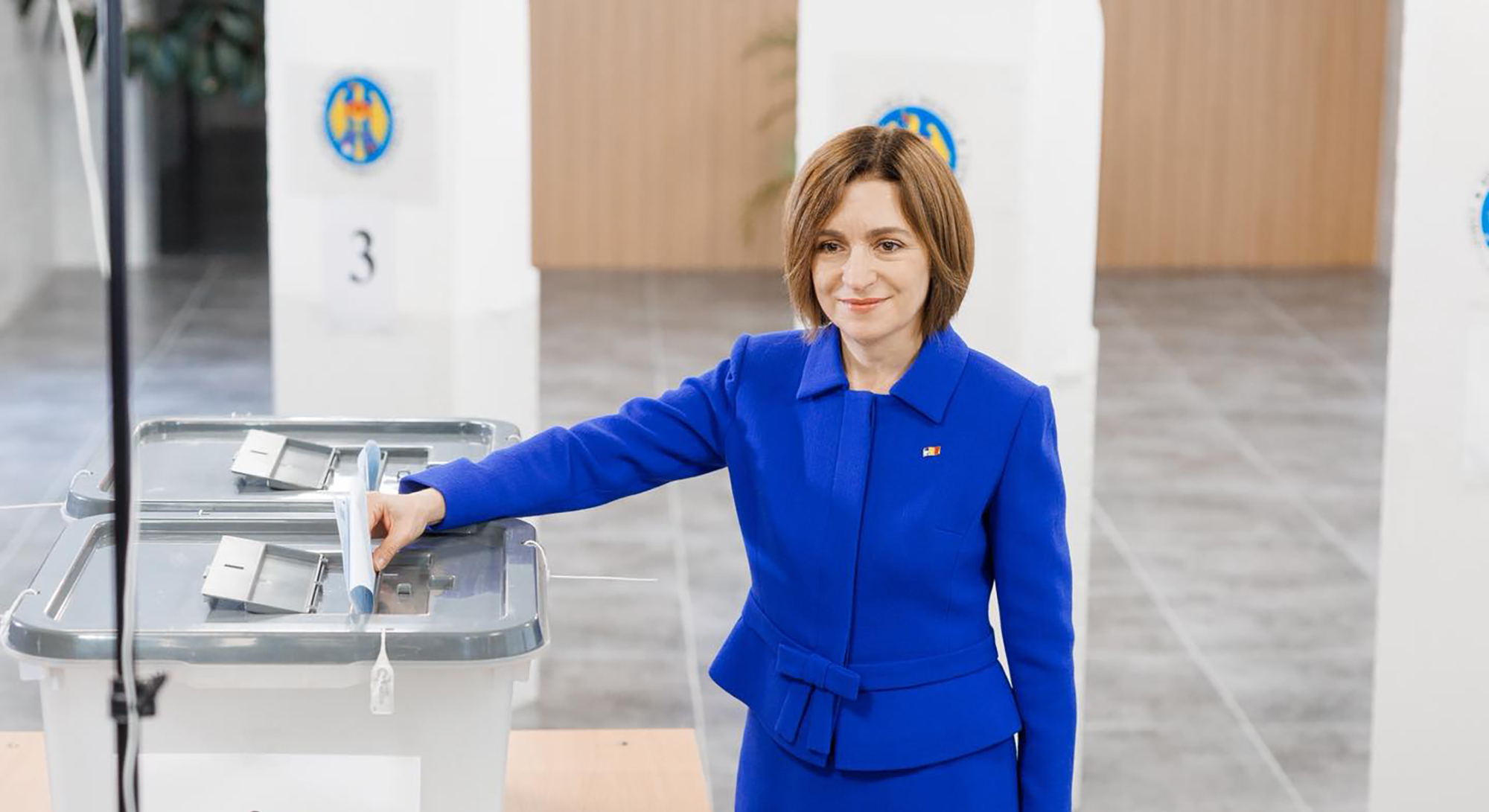The parliamentary elections held in Moldova on September 28 can truly be described as the most dramatic in the country’s history. The results of the elections determined the future not only of Moldova but of the entire region. Within the Republic of Moldova itself, the victory of the pro-European forces was called the country’s second day of independence from Russia. Everyone understood that the victory of political parties supported by the Kremlin would mean that the country would again become a “province” of the Russian Empire.
Moreover, the latter devoted enormous resources to subjugate little Moldova. Just last year, Russia spent 150 million euros to disrupt the referendum regarding the country’s support for European integration — that is 1% of the GDP of the Republic of Moldova, and this represents only the funds that have been identified. How much in total Russia spent from 2023 to 2025 still needs to be determined. The money was sent to Moldova through Promsvyazbank, linked to the Russian special services, using various cryptocurrency platforms or in cash through couriers.
These funds were mainly spent on supporting pro-Russian political forces in the country, but there are also suspicions that, in addition to openly pro-Russian forces such as the Socialist Party, the Communist Party, “Greater Moldova”, “Heart of Moldova”, and others, Russia also supported forces that at first glance cannot be called pro-Russian or that declared themselves as pro-European. The latter included representatives of the Alternative bloc led by the mayor of Chișinău, Ion Ceban, which declares itself as a pro-European political force, but at the same time, most members of this political force have a pro-Russian background. One should not forget about the “Democracy at Home” party, which positions itself as nationalist Romanian and unionist (that is, it advocates for the unification of Moldova with Romania), meaning that its ideology should be the opposite of that of pro-Russian parties, but it has close ties with the Romanian party “Alliance for the Union of Romanians” (AUR), led by George Simion, regarding whom the Romanian law enforcement authorities suspect that it receives funding from Moscow, as do most right-radical and Eurosceptic parties in Europe. Russia mainly supported these parties, hoping that they would divert votes from the ruling pro-European “Party of Action and Solidarity” (PAS).
However, Russian funds were directed not only toward supporting parties but mainly toward maintaining the so-called “Shor network”. This network is connected with the Moldovan oligarch Ilan Shor, who in Moldova is accused of creating a criminal organization and participating in the theft of $1 billion from the state budget. Today Shor is hiding in Moscow. The network, named after him, serves mainly to:
- Spread Russian propaganda through such social networks as TikTok, Telegram, and Facebook;
- Recruit participants for street actions and protests in support of pro-Russian forces.
- Coordinate and bribe voters during the elections themselves.
- Search for and recruit potential members of groups whose task is to stage provocations and take part in clashes with the police. Training of participants took place in Western Balkan countries, mostly in Serbia and in Bosnia and Herzegovina.
The members of this network may number around 140,000 citizens of Moldova. This is more than the population of the country’s second-largest city, the municipality of Bălți. To neutralize the activities of the network, the Moldovan police conducted about 2,000 searches. Around a hundred people were detained, 74 of them on suspicion of preparing to take part in provocations after the elections. All of them underwent training in camps in Serbia, where they were taught to use weapons and techniques of resistance to the police. These active actions of the Moldovan police, supported by the intelligence services of neighboring countries, made it possible to neutralize the network’s influence on the elections. Moldova managed to preserve its pro-European course, which, according to opinion polls, is supported by the majority of the country’s citizens.
What was Russia’s goal? That it deployed so many resources to bring to power forces favorable to itself in Moldova. In addition to the imperialist desire to return a former province of the Russian Empire under its control, there is also an understanding of Moldova’s role as a convenient springboard for spreading its influence to neighboring countries — Romania and Ukraine, especially Ukraine in the context of the current war. A pro-Russian Moldova would become a base for managing a spy network in neighboring regions of Ukraine, especially in Odesa region. In addition, sabotage and reconnaissance groups could enter the territory of Odesa region from the Republic of Moldova and destabilize the situation, distracting the attention of the Armed Forces of Ukraine and forcing the redeployment of resources from more important sectors of the front. Furthermore, a pro-Russian Moldova would strengthen Ukraine’s isolation from its allied countries and block one of the important logistical routes connecting the country with Europe.
For Moldova, this would mean the intensification of the economic and political crisis. Without support from the EU and the large European market, the country’s economy would not be able to cope with the crisis caused previously by the COVID-19 pandemic and the full-scale Russian invasion of Ukraine, when many import and export routes were disrupted.
Will Russia leave Moldova after its failure in the parliamentary elections? This is a good question. For now, the pro-Russian forces in the country are trying to recover from their defeat in the elections. However, most likely Moscow will not stop. It is already trying to destabilize the situation by provoking a humanitarian crisis in the Russian-controlled Transnistria, having stopped the supply of gas to the region. It should also not be forgotten that Russia traditionally raises the stakes in the game. If it fails to subdue a country politically, it tries to do so by arms. The current war against Ukraine is a bloody example of this.
Roman Russu, Moldovan politologist

The articles published in the “Opinions” column reflect the personal opinion of the author and may not coincide with the position of the Center



